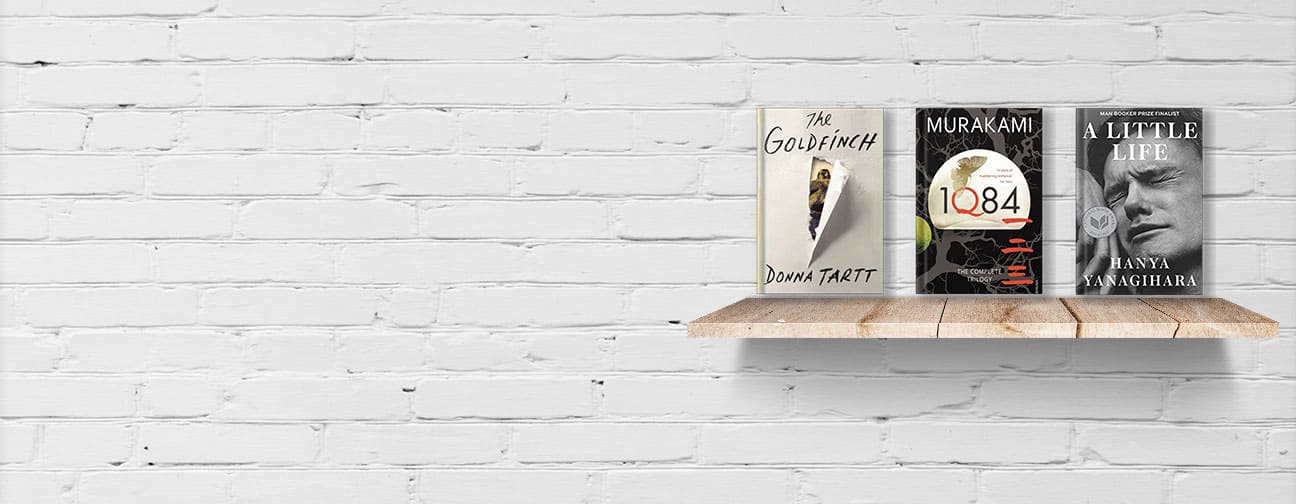The author Meghan Daum went broke trying to publish My Misspent Youth. For her, all publishers kept looking grey at night, flying like rocks.
What happened then?
She landed a book publishing deal with Open City Books and has been enjoying popularity for a decade now. Coming back to the question of how to get a publishing deal that suits your requirements?
Remember, some publishers might find you, and others will offer great deals; that, right there, is the red flag. Do you recall those marker sets with horrible tips but stunning packaging? That’s the definition of a bad publishing deal for you.
Continue reading because this blog will help you find:
- Credible, trustworthy, and remarkable publishers for your books
- Ways to make your story a bestseller
- Answers to the most common FAQs of new authors
Let’s get all rights to your publication reserved below:
1. Hello, Harper Collin’s Office
If you are wondering how to get a publishing deal with Harper Collins, you might be reading the right blog for it. You post on a website daily, manage a book-publishing Twitter account, and share authors’ quotes on your Instagram story, only to hopelessly slide your manuscript back into the drawer.
Already laid an idea? Hachette.
By now, you have gathered thousands of followers, put sneak peeks at your original copy, and calculate sales figures. But did you try to find out how to get a publishing deal for a book you love so dearly?
· All Books Add Up to One
Even Joe Goldberg reads. But do you? The answer to this will be affirmative, but let us rephrase the question,
Do you read every book in the aisle or the ones from a certain publisher?
One of the best things about believing in a traditional publisher is distribution quality. If you land a deal with a classic publisher, you need to see what type of thematic concept they select.
Libraries and bookstores follow specific ordering systems. They will always stick to their preferred systems. Find out which publishers made it to the shade. Bookstores will require paperback designs, but libraries carry hardcovers.
Now, does your desired publisher specialize in your selected format? Do they release your chosen genre? Open a few books from the publisher of interest and check the copyrights.
There you have the website and address, to begin with. Rank your favorites and gather ideas. You are about to learn how to get a book publishing deal.
· So Many Books, So Little Time
You must be invested in a few book cover designs, formats, and genres by this time. Please pick up a few and take them home. Until you read and explore the publishing details of every book, the flaws, and the perfections, you will not be ready to send out that query letter.
Nerd out.
Imagine writing a letter overflowing with the subtle details of their best publications. You are preparing to mention the stuff that goes unnoticed.
The grandstand play is to write about how publication made storytelling better.
Exploring the books in detail will make your tone hit or miss a purple patch. For example, if your genre is ‘mystery,’ the publishers of spine-chilling detective works will cook with gas for you.
· Forky Asks a Question
After drafting a list of how to get a book deal with a publisher of your choice, start asking for relevant information.
Gaining invaluable insight into a publisher’s dos and don’ts will be the toe-dip in the pool that prepares you to get your feet wet.
You never know; maybe your friend list houses an exceptional publisher.
· Kingsman of Publishers
You are probably looking at this heading after drafting a list of publishers desperately waiting on how to get a book publishing deal. Here, the agent will step in. Unsolicited submissions mostly go unentertained by the publishers.
Better safe than sorry.
Suitable agents specializing in your genre and type are not easy to find. Luckily, we might have a way out.
Open your browser and search for the names of the authors whose books caught you off guard. Look up their agents so the algorithm does the magic. Some tools provide agent name databases.
Find the submission policies, recent conferences, and Twitter handles to get in touch.
· Early to Book, Early to Rise
It might sound like a lot of monetary investment is at stake, but the truth is otherwise. Peeking out of the glasshouse won’t save you from stones. You must step out and find the right conferences to build acquaintances.
You will meet great publishers to introduce your concept and some talented writers and editors to brush up on your skills.
A great hack?
The guest lists for these conferences are published months before the date, target the agents and authors and report your attendance. If you are worried about cancellations, don’t be. These conferences are the best places to get your pitches accepted by the guests.
Keep an eye peeled for editors and agents with your best manuscript.
Instead of sitting like the nameless faces in the audience, it’s your time to shine and showcase your ambitions and dreams. Flying under the radar, even with a stellar elevator pitch, is foolish. Your chances of success rev up if you have faith in your idea and dare to speak amidst those exposed to the rodeo.
· Pop the Question
Great news! We are getting closer to your book publishing deal. It’s time to personalize query letters.
What to add in the letters?
Begin by praising their publications, the authors’ impression, and a blurb of your book. You must sound clear about your interest in working with them.
Don’t sound unreal. What a publisher perceives for you is what they’d expect the audience to expect too. Sound realistic and sophisticated.
Stay reasonable.
· Compendium
Get back to your life. Hearing from the publishers takes a while. Some might respond quickly but mostly ask for more time to read the manuscript.
While others might directly reply after reading and deciding to boom or bust.
In the meantime, don’t be heartbroken or lose hope in your manuscript. Keep polishing the concept and gathering ideas to make it better. Only because you sent out the manuscript doesn’t mean there’s no room for improvement.
Consider the first manuscript as a middle for a diddle. You can add prequels and sequels and make an entire series out of one idea—if this is where your book is headed, don’t shy away from voicing this. Don’t worry about losing direction in a smoke-filled room of authors. Worry about opening enough windows to set examples and let the smoke out.
If a publisher accepts you, you won’t think about how to get a publishing deal without sounding needy. Soon after, one of their editors will contact you to chat about your story.
Prepare ahead of time.
Book proposals need reception which is the nuclear option for publications. Your pitch should be influential enough to make them hesitate to let you go.
· Orbit of Submissions
Because you have submitted at certain places, it doesn’t mean the hunt is over. John Green served as the booklist’s publishing assistant for the longest time until he realized his true potential. But zoom into the things he must have learned.
It takes time for your idea to become a reality but forgetting realism under procrastination gulps in all the talent. Staggering submission through a strategic and continual approach is the key to finding the solution to book publishing.
Keep improving pitches.
· Take the Judge to Lunch
We had entered the glorious time when you finally landed a deal with consistency and determination.
Congratulations.
Don’t begin trying to top that one. Call your lawyer instead. Why?
How to get a book publishing deal and consider it perfect until you skate on thin ice? Your lawyer will lint roll the unusual parts of the agreement. Don’t give up on your agent just yet. They did a tremendous job for you. But before signing a document, make sure your lawyer has read and re-read it.
Here again, research and find a lawyer specializing in publishing cases. Rudolf from down the street, which covers divorces, might not be the right pick for the job.
Book publishing requires teamwork. No matter how skilled your agent is, ensure they don’t get intimidated by your lawyer. Try to set the concept straight beforehand to avoid misconceptions and insecurities from either.

2. FAQs of Book Publishing
We know.
The steps to climb the ladder of book publishing are wide and scary. But don’t worry, we know what questions must be popping like corn in your head. New authors, be ready to decipher the intricate details about how to get a publishing deal:
· Do I Really Need a Publisher?
If you have written a manuscript, you are the king. It doesn’t require a publisher to go out in the open. You can self-publish a book or send it to a traditional publishing house.
So, the answer to this question is, No.
Now, traditional publishing deals are like honey flying to the bee. However, they don’t cut the need to produce a book and sell it repetitively to gain acceptance. So, if you wonder why your cousin Sam, an eBook publisher, has a variety of titles to his name, it’s because he didn’t opt for the traditional publishing strides.
If you are willing to self-publish, many ghostwriting agencies help create, design, and publish eBooks. This way, your book reaches the desired audience instead of going from one hand to the other in search of recognition.
· How to Find a Publisher as an Amateur?
Worry not if you think your first book is not as good as the ones you read. As we mentioned before, many agencies can review your manuscript and enhance and improve it. In the meantime, you may not leave any stone unturned on your bookshelf. Devour the storytelling and narration styles in your favorite books.
You are always expected to have titles that match your manuscript’s genre. Be sure that the final piece that reaches you meets the expectations you set after reading your favorite publications.
To be on the safe side, make your friends read your manuscript to boost your self-confidence and gather honest opinions.
· How Do I Send My Book to a Publisher?
As we have thoroughly advised on researching about a publisher, make sure they accept unsolicited submissions. If your desired publisher doesn’t take such submissions, your next target will require searching for how to get a book deal with a publisher that does.
The fishing expedition for editors to review your manuscript sounds naïve. It might as well put you in the red zone. If any publisher gets the hint of your unrealistic expectations, they might exploit you as an amateur.
Publishers have websites with instructions, mailing addresses, and manuscript criteria. If you are lucky, you might find contacts for departments or personnel in charge of your manuscript envelope.
If your file is digitally hard to submit, don’t worry. Postman Pat will love to be of service. Early in the morning.
· How to Stand Out of the Crowd?
Irrespective of the type and genre of books your favorite publisher is eyeing, shoot your shot. Any publisher will be ready to work for your genre if your work exceeds their expectations.
Don’t forget about your audience.
Publishers keep a weather eye open for selling insights if your draft snatches their pebble; welcome on board.
Narrow down your topic to the publication genre, and focus. Don’t deviate from the narration, as cloudy themes scare away publishers. Find the basic details of a publisher’s work and try to orbit around it.
Publishers dig an active audience. Your few hundred followers might come in handy here. They want their publications to be read and broadcast among bookworms.
· Will A Publisher Edit My Book?
Every publisher will edit a book before putting it out there. Even if you have a team of writers and editors working for you, your book will go through keen eyes, pinpointing the flaws.
Don’t worry.
It is okay for a publishing house editor to demand a few corrections because they know what sells and what sounds better. Consider making pancakes. Because you bought a pancake mix doesn’t mean you won’t add an egg.
Is it necessary? No. But will it make the batter great? Absolutely.
You want to give your audience a recipe that leaves them licking their fingers. Let the editors do their magic, and don’t be intimidated by their changes. Leaving room for learning is the first step to becoming a world-famous author.
· How Much Shall My Pockets Weigh?
Now, this is a tricky question.
Traditional and self-publishing will cost you a specific amount of money. Traditional publishing costs, however, are less than self-publishing costs.
But we must prepare you to set aside some hundred to thousands of dollars. Don’t bite your nails off, be tactical. Find a solution. There is always a way out of a monetary compromise. Ask authors who started with nothing in their pockets.
While these are the publication costs, some newbies might require courses to learn about writing book proposals. Printing and mailing the manuscripts also requires hard cash.
Lastly, postage costs are a cherry on top.
Moreover, self-publishing books involve money for publishing expenses and book publishing deal materials. Marketing and website costs are an added amount in the entire publishing venture.
· Will I Pay Publishers for My Book?
Traditional publications are the answer to this sweet question.
They pay you to provide them with the audience and fanbase through your book. However, self-publishing platforms don’t work the same way. They charge you for the services. If your ebook needs to go on the site, the software will integrate payment platforms for selling it ahead.
That’s where the money goes.
There are different costs to get a product to sell – hidden and visible. Publishing is also a business to sell great books. Budgeting for your project is the key to spending in a range.
Be generous in the publication process to ensure a thorough, dedicated, and polished piece comes out by the publishers.

The Smell of Fresh Pages
We are wrapping it up with good luck and wishes being sent your way. Our team is already smelling the new pages of your latest book and can’t wait to read it.
The information provided above is intimidating—we agree.
Get started today to slowly grasp the steps and finalize the book publishing platform for your manuscript. The comprehensive details of the alleyways and gardens of publishing in this blog will help you visualize what’s coming ahead.
If you don’t think traditional publishing is for you, you can always take the self-publishing route!
Do not waste time and regret it ten years later when someone else publishes your concept. An idea is a state of mind. If you don’t clench onto it, many lions are out hunting for it.





